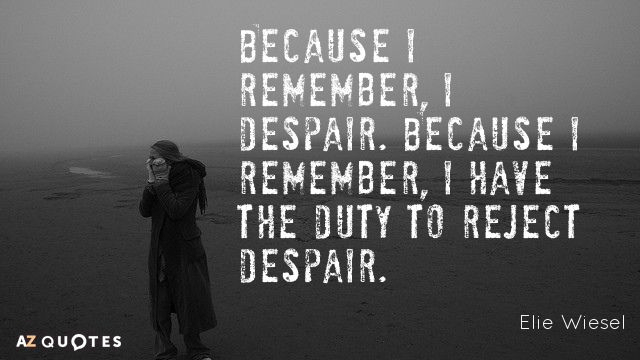One of the concentration camps that had "Work makes one free." on the entrance gate.
What is Auschwitz?
When Elie Wiesel mentions that Juliek is some one that "I will never forget" (Wiesel 98), the author is employing the rhetorical device known as _______.
What is "ethos"?
The answer is "ethos" due to the fact that Elie focuses on how he values Juliek, as well as the way he admires the violinist's final actions.
When Elie Wiesel recalls the way that Nazi soldiers would amuse themselves by throwing bread at starving prisoners (for them to fight over), this is an example of the author utilizing this rhetorical device.
What is pathos?
The cruelty itself is enough, but when combined with the soldiers' amusement, the audience should recognize that the author is evoking an emotional response (we should be disgusted and/or upset).
When Wiesel notes that 12 of the some 100 passengers who traveled to Buchenwald survived their forced march.
What is "logos"?
The usage of numbers here helps the audience to recognize the extent of the Nazis cruelty at the end of the 2nd World War (and at the end of the memoir).

What is "ethos"?